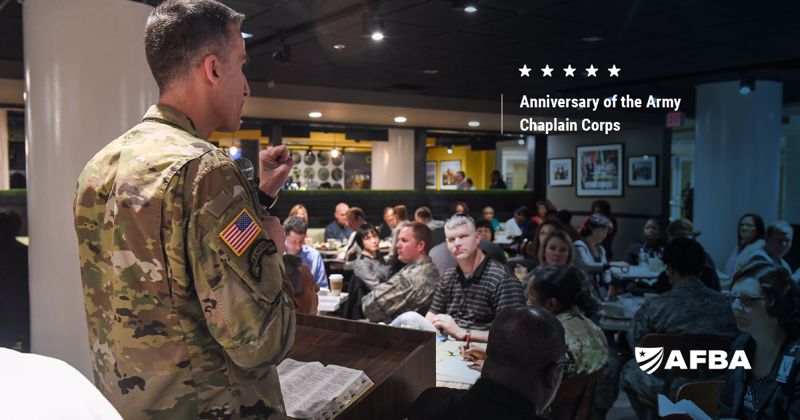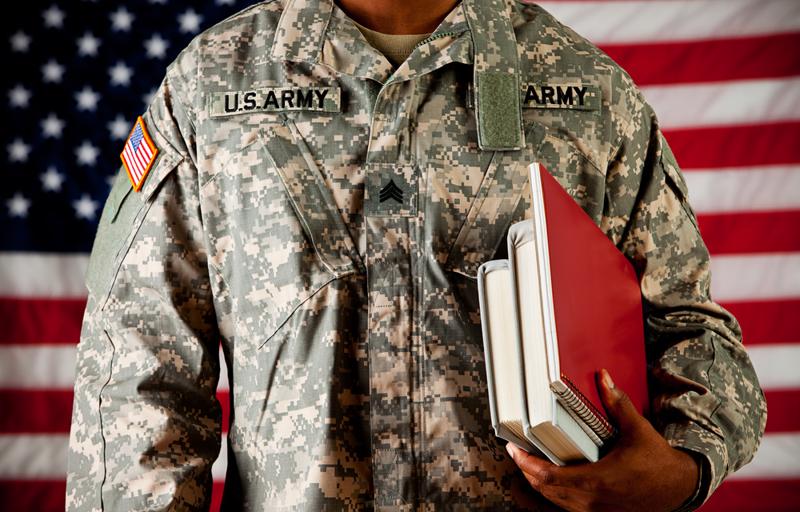George Washington is quoted as saying, “We need chaplains” while addressing the Continental Congress before the service was formally established on July 29th, 1775. That means U.S. Army chaplains have been around since before the Declaration of Independence was signed.
During the Revolutionary War, they acted as spiritual leaders to help inspire and motivate soldiers. Little has changed since then. The U.S. Army Chaplain Corps (DACH) still serves a critical role in the daily functions of the Army by providing religious and moral support.
Every year since its birthday, the anniversary of the DACH is celebrated. This July 29th, you can use the opportunity to acknowledge the exemplary work of the DACH in your own way.
Here, we’ll discuss the DACH”s mission and how you can potentially become a chaplain.
 “The appearance of the U.S. Department of Defense (DoD) visual information does not imply or constitute DoD endorsement.”
“The appearance of the U.S. Department of Defense (DoD) visual information does not imply or constitute DoD endorsement.”What does the DACH do?
The primary purpose behind the DACH is to offer support to the U.S. Army. This is usually religious support for a wide range of faiths, but they also help those who do not subscribe to any particular religion. This can include counseling, church services or other moral support. They also:
- Serve in correctional or medical facilities or combat hospitals.
- Offer family or marriage counseling.
- Can act as instructors in officer service schools.
Some chaplains choose to further their training and education to prepare them for higher-level work. This could mean taking on staffing responsibilities, handling personnel-related tasks, or being involved in financial and logistical duties.
The DACH never stops working. In peacetime or war, whether soldiers are deployed or at home, chaplains are always there to offer their services. They understand that servicemembers have a near-infinite variety of backgrounds, and they aim to help all who could benefit.
Army chaplains aren’t restricted in what type of unit they serve. Intelligence, infantry, community ministries, hospitals — you will find chaplains in all these places.
Considered non-combat personnel, chaplains are supported by religious affairs specialists. In addition to organizing worship services and religious programs, these specialist troops have administrative duties and must act as an armed guard to ensure chaplains’ safety in combat situations.
How do you become an Army chaplain?
Chaplains serve a vital purpose in their units, meaning they must undergo extensive education and training programs to prepare themselves for such great responsibilities. They’re treated as Army officers and receive all the privileges other officers have.
Unlike some other Army positions, Army chaplains must have formal higher education: at least a bachelor’s degree. In some cases, graduating college seniors can enlist.
An endorsement from the applicant’s faith group is necessary, as is being enrolled full-time in an accredited graduate program that can qualify them for ordination.
Another challenge is the Chaplain Candidate Program (CCP). Ministry students may begin this training while they’re still in school.
Chaplains are exempt from Basic Combat Training (BCT) but still undergo physical tests to build strength and endurance. Chaplains must pass the Chaplain Basic Officer Leader Course (CHBOLC): In addition to requiring an adequate level of fitness, this course trains chaplains academically and spiritually.
Celebrate the anniversary of the Chaplain Corps this July 29
The DACH has had nearly 250 anniversary celebrations during its lifetime, and they’ve remained a core part of many Army units. On July 29th, show your appreciation for the DACH and its role in providing religious support to every soldier.

